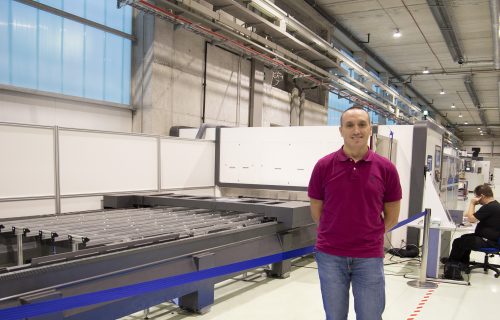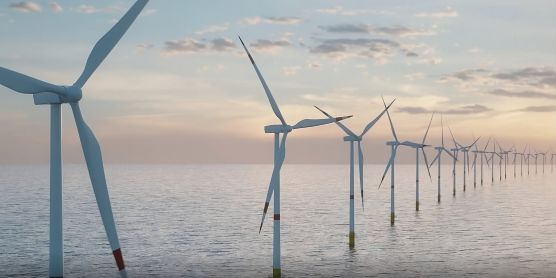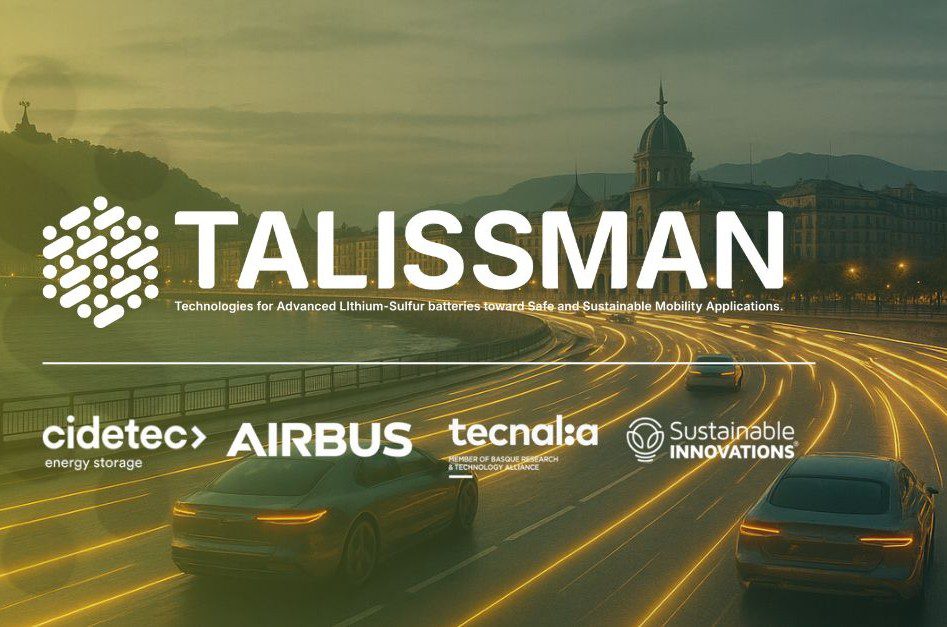Technological innovation to reduce the environmental impact of the aeronautics sector

ARTICLE
The objectives set by the European Union in terms of sustainability and mobility require a renewal of the fleet and new manufacturing systems to meet the demand.
Author: Oscar Gonzalo, Head of Aeronautics Sector at Tekniker
 We are living in a transcendental moment to face the social, economic and environmental challenge posed by climate change. In the case of the aeronautical sector, the objectives set by the European Union of climate neutrality for 2050 generate the need to invest in technological research and innovative solutions that enable the transformation of aviation. The aim is to reduce CO2 emissions by 30-50% and improve the mobility of people and goods.
We are living in a transcendental moment to face the social, economic and environmental challenge posed by climate change. In the case of the aeronautical sector, the objectives set by the European Union of climate neutrality for 2050 generate the need to invest in technological research and innovative solutions that enable the transformation of aviation. The aim is to reduce CO2 emissions by 30-50% and improve the mobility of people and goods.
Sustainability: towards climate neutrality
The main lines of research to improve the sustainability of the aeronautical sector are currently focused on reducing emissions through new propulsion systems using energy sources such as electricity, hydrogen or SAF (Sustainable Aviation Fuel). On the other hand, research is being carried out into lighter designs for structural components and more efficient aerodynamic ones.
The combination of both aspects leads to the need to develop new aircraft architectures, ready to accommodate new propulsion and energy storage systems. The trend towards electrification and digitalisation of the industry also poses new challenges in the field of actuation and control systems.
The new generation of aircraft will require new designs that integrate all these technologies to achieve sustainable transport.
New trends in mobility
According to forecasts by leading aeronautical manufacturing companies, the coming decades will see a significant increase in air traffic, to double the pre- pandemic traffic by 2041, and a significant renewal of aircraft. The fleet of aircraft with more than 100 seats is expected to double.
Studies indicate an increase in new types of aircraft to meet the demand for mobility according to the type of journey and cargo to be carried (passengers, freight, unmanned craft, etc.).
In this sense, an increased use of electric propulsion is expected for short flights, urban mobility and specific aircraft models such as helicopters. For hydrogen, the range is extended to medium and short flights. Long flights will continue to be operated by aircraft powered by ultra-efficient turbine technologies using fuels and PBS or hybrid technologies exploiting the advantages of the different alternatives (electricity, hydrogen and PBS).
Industrialisation of breakthroughs
To meet all this technological demand, it will be necessary to develop production systems suitable for the industrialisation of new developments with sustainable and efficient manufacturing systems to achieve production rates adapted to demand.
The trend towards the digitalisation of these design and production processes will also be important to address the entire life cycle of the product until its end of use and recycling.
In this context, the Basque technology centre Tekniker is working on the development of technological solutions that contribute to achieving the sector’s objectives. Its offer focuses mainly on improving the sustainability and efficiency of component manufacturing processes. But it also contributes directly to improving the sustainability and mobility of air transport with the design and control during the use of aircraft components.
Tekniker and its contribution to performance and productivity
With regard to the manufacture of components, Tekniker covers aspects related to the improvement of materials, processes and means of manufacture, along with additional technologies that address the inspection and measurement of components or the digitisation of production and maintenance of production equipment.
The materials part mainly covers surface modification processes to provide components with additional functional properties (anti-icing, non-stick, cleanliness, etc.) through the use of coatings and texturing. The centre is also working on the additivation of polymeric materials with the same objective.
In this area, it is also developing technologies for recycling and reusing composites to extend the useful life of carbon fibre materials (uncured prepreg and thermoplastic composites).
The manufacturing processes are mainly chip removal and the use of lasers. In the latter field, Tekniker carries out additive manufacturing, drilling, surface hardening and welding processes. In machining, it carries out process optimisations through the analysis of cutting conditions and tool design, as well as through assisted machining technologies.
The centre also deals with the optimisation, design, manufacture and assembly of production means. These include machines with their complementary elements, test benches and robotic systems, the latter especially focused on the development of autonomous and collaborative systems.
Inspection and measurement | Digitalisation
Tekniker has complementary technologies that can be used in the manufacturing stages of aeronautical components or during their use.
Inspection and measurement activities cover metrological technologies for quality control and improvement of manufacturing processes, their means and products.
Sometimes it is applied to verify components in use. Tekniker develops methods and measuring equipment to perform these processes as quickly and accurately as possible. In particular, it carries out work on the integration of metrological systems into production systems.
In the technology centre, digitisation is geared towards obtaining data which, after analysis, can be used to draw conclusions for optimising manufacturing processes and resources or components in use in aircraft.
The aim of the analyses is to improve the design and operation of systems or to establish optimal maintenance strategies. To this end, it obtains data through the integration of sensors or, when direct measurement is not possible, through digital twins.
Applications within the aeronautical sector are related to the analysis of the state of different components (actuators, fluids, joints…) which are analysed on test benches for the study of maintenance strategies.
Finally, regarding the design of aircraft components, Tekniker’s activity is focused on the development of electrical systems to contribute to the increasing electrification of aircraft, such as power converters and electric actuators.
The technology centre applies all this technological offer in European initiatives funded by the European Commission such as RECYCOMP, WEIBAL, INNOTOOL or FLUIDER, in which it accompanies leading aeronautical manufacturers to improve their production processes and products, in order to move towards more sustainable and efficient manufacturing and aeronautical industries in a new paradigm for mobility in the European Union.
Tekniker mainly contributes to the development of more sustainable manufacturing processes in order to reduce the environmental impact expected in the coming years due to the growing demand for aircraft to replace and expand the current fleet. In addition, it collaborates with aircraft and system manufacturers in the development of new concepts for the improvement of sustainability and mobility in the sector with the aim of achieving climate neutrality by 2050.




